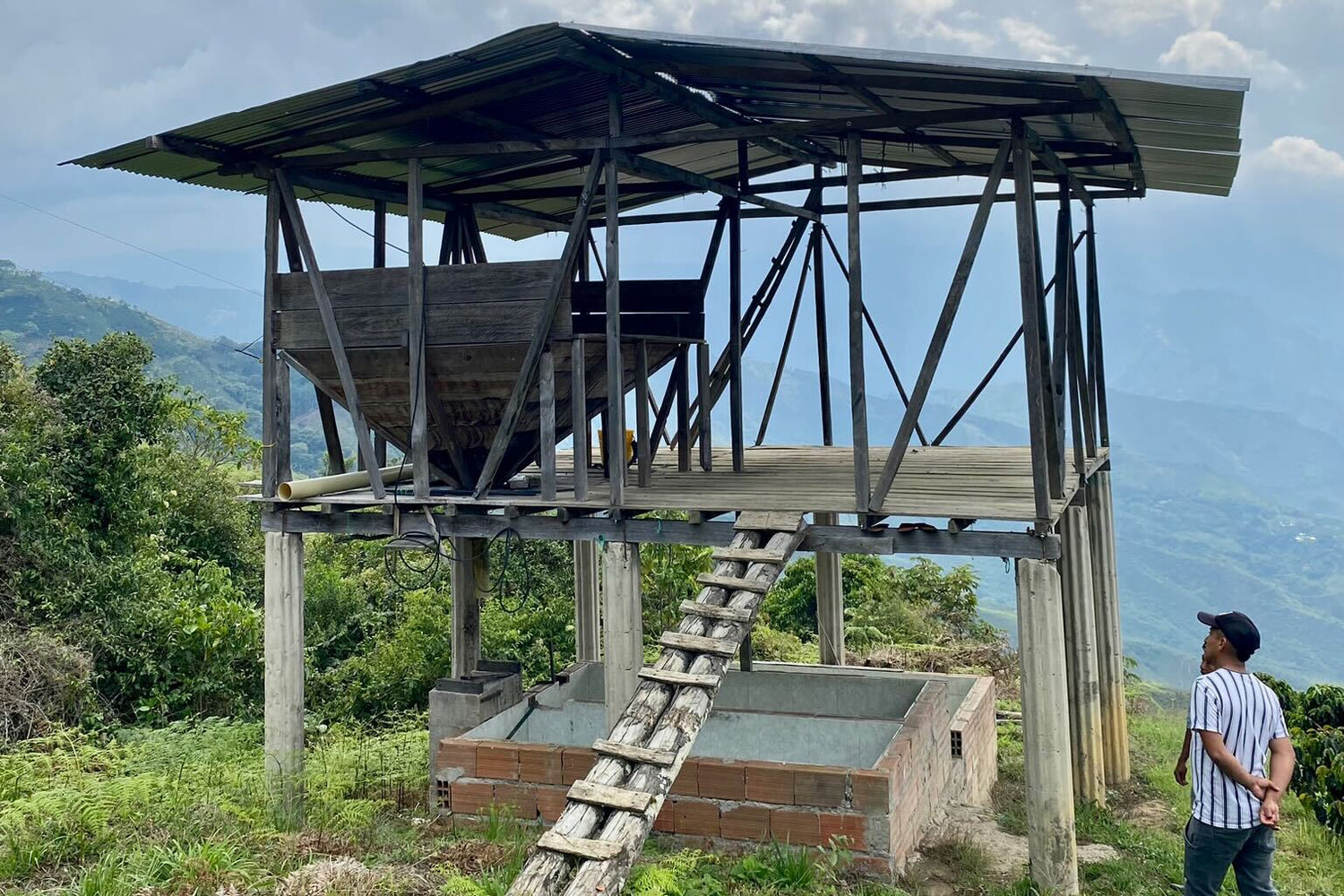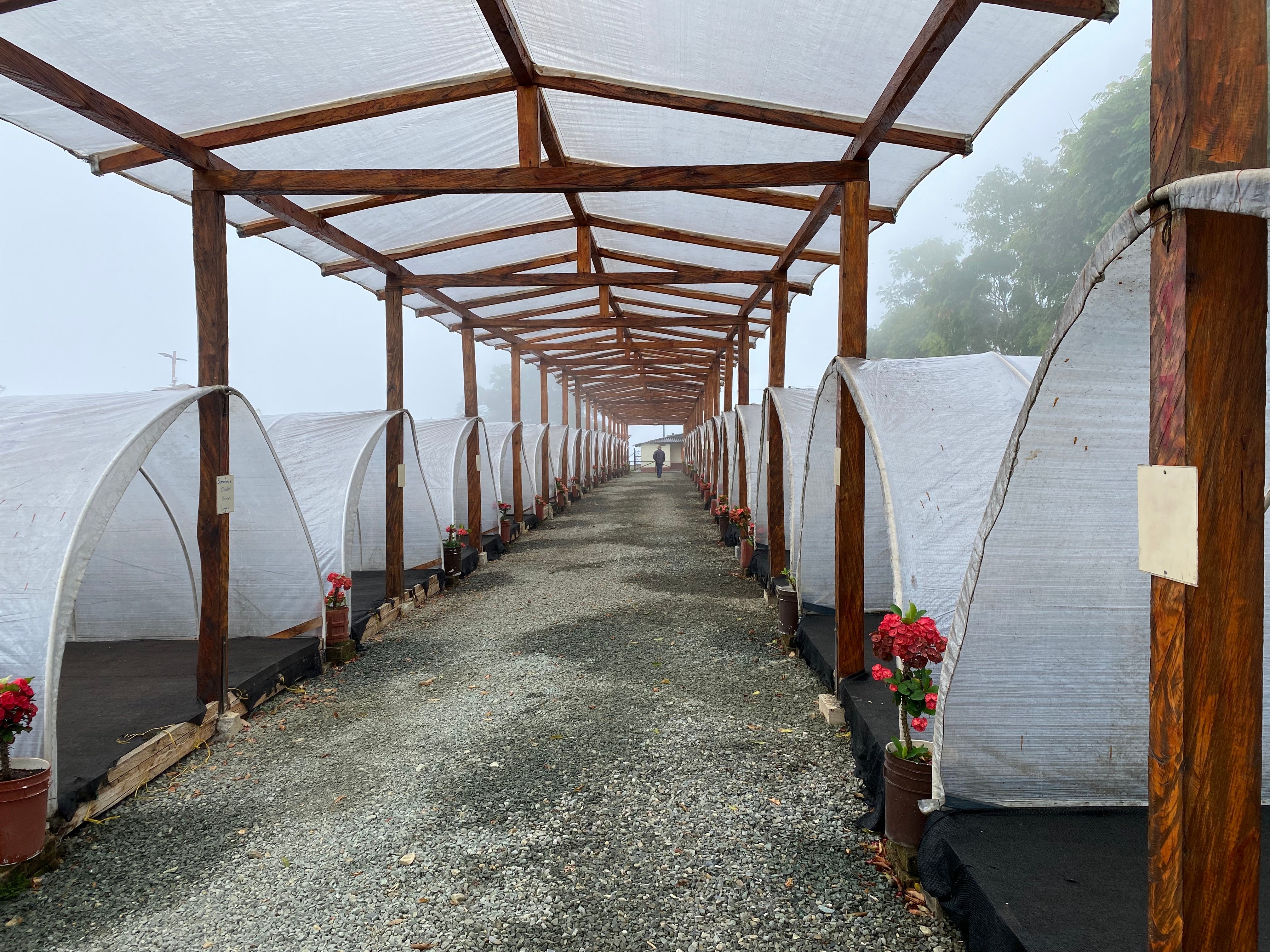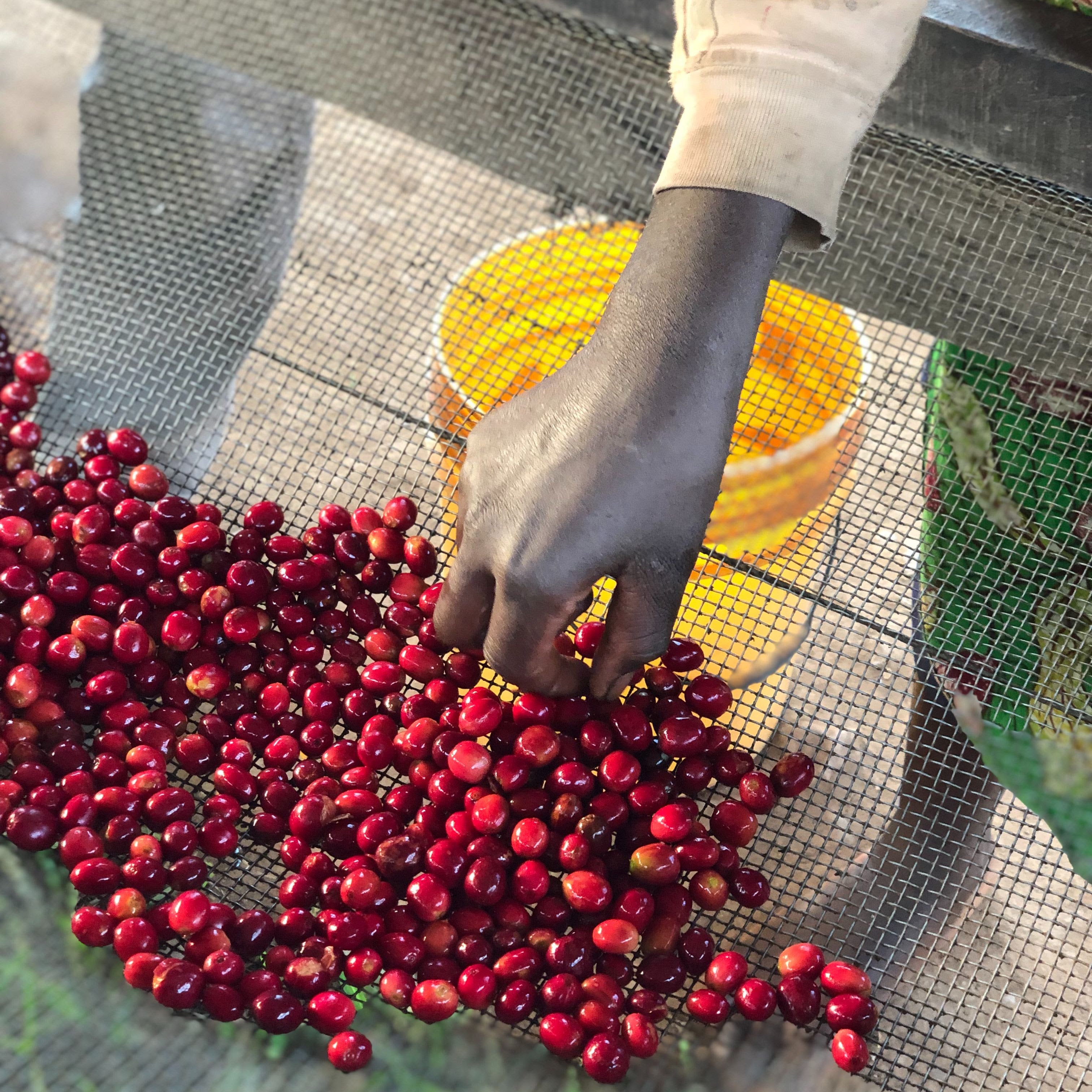Cauca is among the four Colombian departments where we concentrate our sourcing efforts. We are especially fond of the community lots we source from Pergamino, our longtime export partners there, which have become staple components of Bedford and Flatiron.
Zulieth is among the younger generation of a family of prominent coffee farmers in Cauca. She delivers to Pergamino's collection point in Inzá as a participant in their Allied Producer Program. Once Pergamino receives her coffee, it is labeled, cupped, and graded. High scoring lots (like this) are separated, awarded additional premiums, and designated as microlots.
Zulieth's farm, which she calls Finca Bellavista, is a two-hectare property at 1,850 meters above sea level (or about 6,070 feet). It is mostly planted with castillo, a hybrid cultivar that was developed and promoted heavily in Colombia in the 1980s for its resistance to coffee leaf rust. The farm is equipped with a small wet-mill and parabolic drying tunnels which enable her to process her coffee down to parchment.
For a typical washed process, Zulieth first depulps her coffee, then ferments it without water in concrete tanks for about 24 hours. After fermentation it is washed with clean water to remove the remaining mucilage and moved to drying tunnels, where it dries in approximately 10-18 days.
Zulieth's goal in the long term is to improve the success and sustainability of the family business. To that end, she is studying business administration in the neighboring department of Huila. Each week she makes a three hour journey to the city of Neiva, returning home on weekends to manage the farm.
Topographically, Cauca is similar to its neighboring states of Huila and Tolima, with good elevations, fertile volcanic soil, and a prolonged harvest season due in part to its near equatorial latitudes. For many years Cauca was less accessible to specialty buyers due to persistent security concerns, but a decade of relative stability has increased the availability of high quality, traceable lots from this incredible region.
Zulieth is among the younger generation of a family of prominent coffee farmers in Cauca. She delivers to Pergamino's collection point in Inzá as a participant in their Allied Producer Program. Once Pergamino receives her coffee, it is labeled, cupped, and graded. High scoring lots (like this) are separated, awarded additional premiums, and designated as microlots.
Zulieth's farm, which she calls Finca Bellavista, is a two-hectare property at 1,850 meters above sea level (or about 6,070 feet). It is mostly planted with castillo, a hybrid cultivar that was developed and promoted heavily in Colombia in the 1980s for its resistance to coffee leaf rust. The farm is equipped with a small wet-mill and parabolic drying tunnels which enable her to process her coffee down to parchment.
For a typical washed process, Zulieth first depulps her coffee, then ferments it without water in concrete tanks for about 24 hours. After fermentation it is washed with clean water to remove the remaining mucilage and moved to drying tunnels, where it dries in approximately 10-18 days.
Zulieth's goal in the long term is to improve the success and sustainability of the family business. To that end, she is studying business administration in the neighboring department of Huila. Each week she makes a three hour journey to the city of Neiva, returning home on weekends to manage the farm.
Topographically, Cauca is similar to its neighboring states of Huila and Tolima, with good elevations, fertile volcanic soil, and a prolonged harvest season due in part to its near equatorial latitudes. For many years Cauca was less accessible to specialty buyers due to persistent security concerns, but a decade of relative stability has increased the availability of high quality, traceable lots from this incredible region.








Leave a comment
This site is protected by hCaptcha and the hCaptcha Privacy Policy and Terms of Service apply.